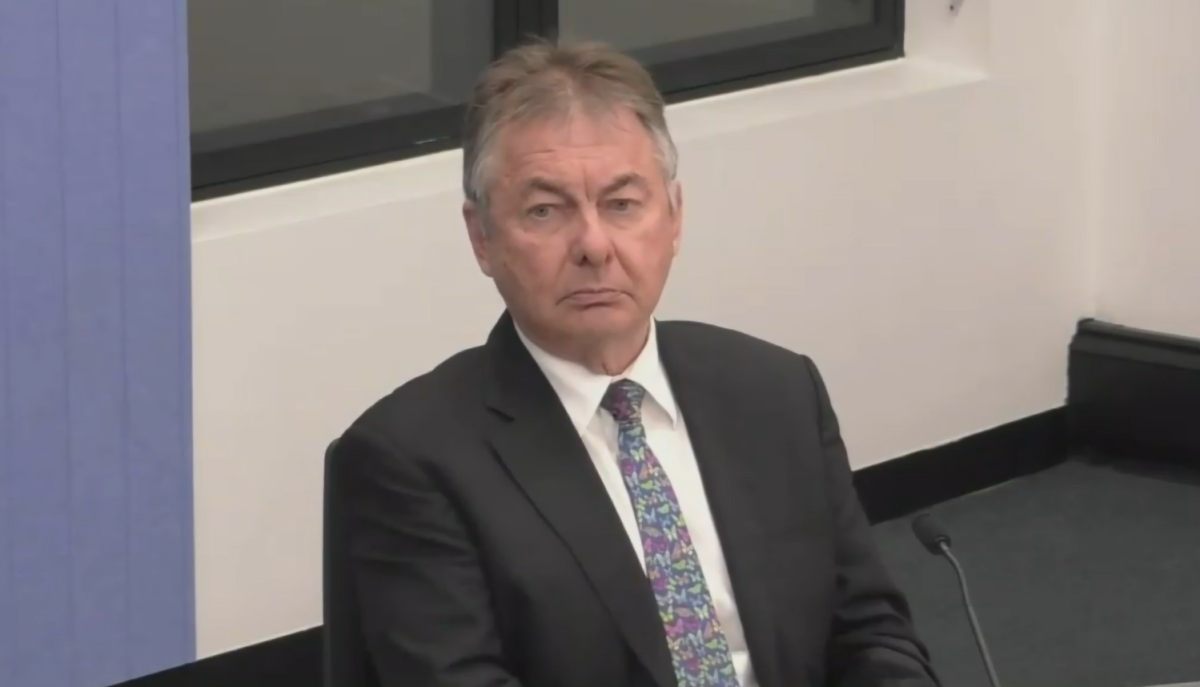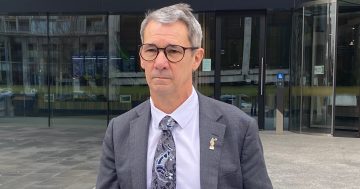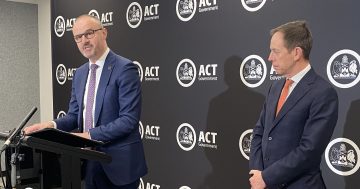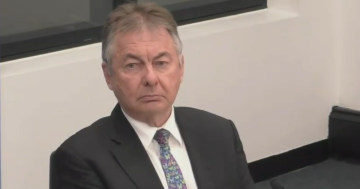
Walter Sofronoff KC’s lawyer said Mr Sofronoff found it “baffling” that Andrew Barr was concerned by his engagement with journalists. Photo: Screenshot.
Board of Inquiry chair Walter Sofronoff KC has hit back at Chief Minister Andrew Barr’s claims he breached the ACT Inquiries Act by providing a copy of the inquiry report to journalists before it had been publicly released by the government.
Last month, Mr Barr said that a “reasonably straight reading” of the legislation would “clearly indicate” Mr Sofronoff breached the act.
In a letter released yesterday (31 August), Mr Sofronoff defended his decision to share the report with ABC journalist Elizabeth Byrne and The Australian journalist Janet Albrechtsen on the basis that the copy was embargoed until it had been published by the government.
“I furnished those copies under my authority as chair of the inquiry,” he said, pointing to sections 13 and 18 of the Inquiries Act.
“It served to ensure that, when the government published the report, those two journalists would be in a position swiftly and promptly to write and broadcast stories that would have as their foundation a true appreciation of the result of the work of the commission,” he wrote.
Mr Sofronoff also provided a copy of the report to Brittany Higgins’ solicitor Leon Zwyer out of concerns for Ms Higgins’ health and the impact the release of the inquiry report might have.
Asked about the matter today, Mr Barr responded that “Mr Sofronoff’s lawyers are able to write as many letters as they want”.
“I will act upon my obligations under Territory law that relate both to matters of integrity through our Integrity Commission, and that relate to matters associated with the Inquiries Act.”
He said the ACT Government has sought legal advice and will act on that advice, that there is a matter before the Supreme Court in relation to the Board of Inquiry at the moment, and that he is not in a position to elaborate further at this stage.
In a strongly worded letter to Mr Barr and Attorney-General Shane Rattenbury, Mr Sofronoff’s lawyer Glen Cranny called for the Chief Minister to make a public statement accepting Mr Sofronoff acted ethically and did not breach the terms of the act.
“We are writing on Mr Sofronoff’s instructions to point out respectfully why Mr Barr was wrong to say Mr Sofronoff had contravened the act and to impute that he had behaved in bad faith. We also write to give Mr Barr an opportunity to correct the harm that he has caused to Mr Sofronoff’s professional reputation,” Mr Cranny wrote.
He pointed out that it is a “necessary and fundamental attribute” of a public inquiry that it “has the means to communicate with the general public, usually via the mass media”.
“In short, unless there is a good reason, a board of inquiry must publish to the world the evidence and information that it has gathered.
“In this instance, Mr Sofronoff publicly undertook to ensure that any document or piece of information that he might take into account in formulating his report would be published.”
Mr Cranny said the engagement with journalists throughout the inquiry was “never a secret” and was known by the staff of the inquiry, who were appointed by the government. During the inquiry itself, Mr Sofronoff also said that he and his counsel had “freely engaged” with journalists to ensure they fully understood the evidence and its significance.
“Mr Barr’s statement that he found Mr Sofronoff’s statement that he engaged with journalists ‘concerning’ was baffling to our client.”
Mr Cranny invited Mr Barr and Mr Rattenbury to consider the matters in the letter and obtain legal advice.
“We would respectfully invite Mr Barr also to consider whether the best course would be to make a public statement to the effect that, having taken advice, he accepts that Mr Sofronoff neither breached the terms of the statute, nor did he act unethically and that Mr Barr is now satisfied that Mr Sofronoff performed his duties properly and fully.”

















